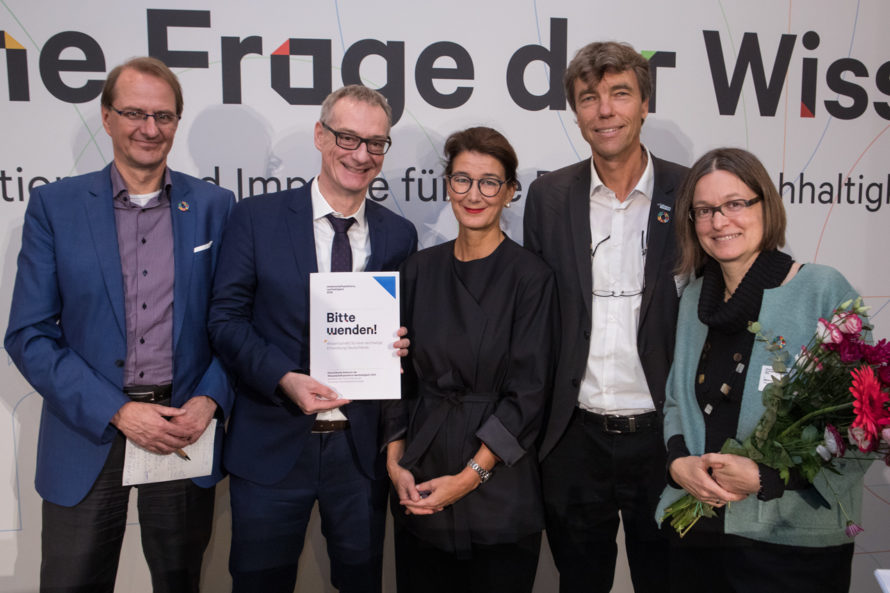06.12.2019

(Potsdam, 6. Dezember 2016) How effective is Germany’s sustainability policy and how could the Sustainable Development Strategy better support it? The Science Platform Sustainability 2030 (wpn2030) has grappled with these questions since it was established in 2017. At its first annual conference in Berlin (5–6 December, Umweltforum), the platform presented its initial response in a wide-ranging reflection paper titled “Bitte wenden. Wissen(schaft) für eine nachhaltige Entwicklung Deutschlands” (Please Change. Knowledge and Science for Sustainable Development in Germany). The paper draws on contributions from over 200 researchers from various disciplines as well as experts from politics, business and civil society. The paper was presented to the Federal Government of Germany at the wpn2030 conference and will contribute to the forthcoming update of the national strategy in 2020.
“It is high time that the Federal Government responds to the upheavals of our time by taking decisive action to initiate lasting changes that will foster sustainable development,” argued SPS2030 co-chair Patrizia Nanz. “This requires that we align mobility, agricultural and climate policymaking with the challenges of the unfolding transformations and social upheavals of our time and implement sustainability policy in an all-of-government approach that is more consistent than previous efforts.”
As a cabinet-level strategy, the Sustainable Development Strategy offers a solid basis for these efforts, according to co-chair Dirk Messner: “The strategy has had little effect to date: We are off track on 29 of the 66 indicators identified in the strategy, for example.” wpn2030 has identified six key areas for the advancement of the national strategy, including greater efforts to strengthen its role in policymaking and social development. Messner: “We must finally begin to use the national strategy as a compass for sustainable development – in other words, for all of the major processes that interact with sustainability challenges. To this end, the strategy must be adapted so that it assigns responsibility to specific government ministries for tasks relating to these transformation processes.”
wpn2030 co-chair Martin Visbeck highlighted another opportunity to make the strategy more effective: “There are enormous potentials for conflict and synergies around the Sustainable Development Goals for the protection of natural resources, for example. Political debates around these issues need to be strengthened and deepened through the systematic integration of scientific findings – a task that the Science Platform Sustainability 2030 currently fulfils.”
The reflection paper “Bitte wenden. Wissen(schaft) für eine nachhaltige Entwicklung Deutschlands” is informed by several processes for the development of the national strategy conducted under the umbrella of the SPS2030. These processes include transdisciplinary working groups on key issues for sustainable development such as mobility, sustainable consumption, the future of work, and the global commons as well as a consultation of the German scientific community conducted online in 2019. These processes are complemented by a dialogue among the scientific advisory councils serving the Federal Government on sustainability issues, which was initiated in 2018 by wpn2030 in collaboration with the Sustainable Development Solutions Network Germany.
German sustainability policy has been guided by the Sustainable Development Strategy since 2002. Since 2016, this national strategy been aligned with the United Nations’ 2030 Agenda for Sustainable Development with its 17 Sustainable Development Goals (SDGs). The Federal Government is set to update the strategy once again in 2020.